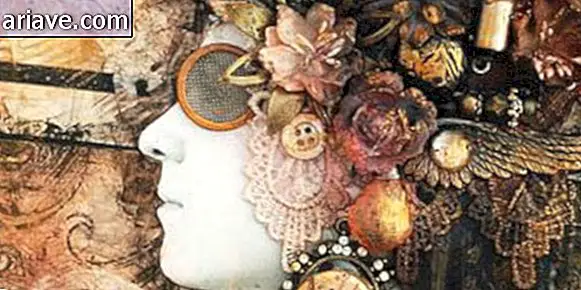After all, what is such a Paris Syndrome?
Who hasn't been to Paris would probably still like to see the city considered the most romantic of all time. Who once was is quite capable of wanting to return - or not. When it comes to traveling to the City of Light, some develop the trauma of experience. This trauma not only exists but also has its name: "Paris Syndrome."
Exame recently published a story about a Paris syndrome epidemic that was hitting Chinese tourists. The question that remains is: what happens to these tourists? The answer is basically simple: reality shock. After years of devising a city shown in great movies, many tourists - especially Asians - come to Paris and are disappointed.
The truth is that Amélie Poulain's image of Paris, all in shades of green and red, is bought by many people hoping to reach the city and find a miraculously poetic, safe and visibly charming place.
But is not it?

Not that Paris isn't exactly all that, the point is that you'll be in a city full of tourists, tired tourists, and people hoping to take advantage of tourists. Sacre Coeur's staircases, for example, are full of people who do their best to buy you some souvenirs.
If you decide to take public transport and opt for the subway, it is very likely to be full at peak times, like any other normal city.
The Paris Syndrome is not only a disappointment of Chinese tourists to the city, it is a sign that the economy of the country may be damaged, after all many Chinese leave saying that they will never return to the French capital. Doubt?
Let's get to the data, then: at least 1 million Chinese go to Paris every year; Tourism in France accounts for 7.2% of the country's GDP. With the number of Chinese tourists getting smaller and smaller, it is normal for the country to feel relatively threatened.
Profile

In addition to contributing to tourism, the Chinese are known for shopping for upscale goods in the country, such as Louis Vuitton handbags, Chanel and Hermes products. In addition, these visitors carry large amounts of cash and are therefore frequent targets for theft.
According to psychiatrist Michel Lejoyeux of Bichat hospital, issues such as the excitement of being in a country that speaks another language, uses another currency and causes new sensations end up making tourists feel lost, disoriented.
The same disappointment was noted by a group of Japanese visitors a few years ago. The guys arrived in Paris and, having known several sights, began to freak out and despair. This is precisely because of the tendency to think that the city is the most beautiful and perfect in the universe. She may be beautiful and perfect, but only if her concept of "perfection" does not include the absence of defects.
No more crying

The problem, which may seem a little futile at first, is the result of the combination of expectation and lack of information. The biggest mistake is to think that Paris is exactly the city portrayed in "Amélie Poulain's Fabulous Destiny" or, perhaps, "Midnight in Paris."
It is the same as you think that real life Rio de Janeiro is the same as Rio de Janeiro portrayed in Manoel Carlos' soap operas. It is not. The best thing to do is, before buying your ticket, to learn a little about the country and to know that being there will be an experience rich in new emotions.
Also take advantage of not being a tourist bank and avoid walking with your camera around your neck or with your phone in your hand at all times. If you can, make an international credit card - it's much better than taking a lot of cash. Another thing: you know that the Eiffel Tower is the most visited tourist spot in the world. Don't expect to climb to the top without facing a relatively lengthy queue. Same for any other major attraction, such as the Louvre Museum.
It's really weird to step into a place you knew just because of the movies, but it's also a unique feeling that should be enjoyed to the fullest. A little patience and realism doesn't hurt anyone.











